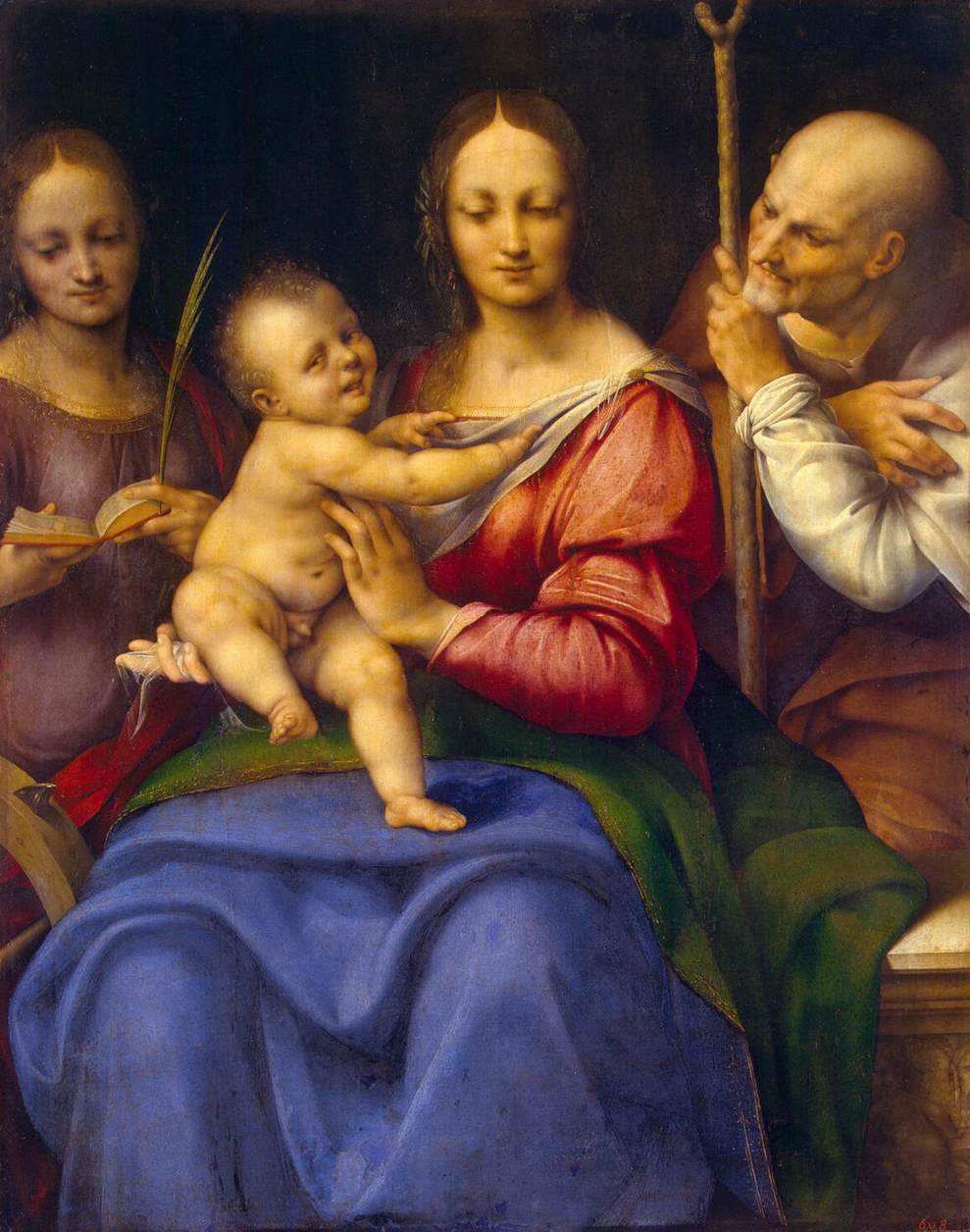Description
The painting "Holy Family with St Catherine" by Italian artist Cesare Da Sesto is a late Renaissance masterpiece. The work, which measures 89 x 71 cm, represents the Holy Family together with Saint Catherine of Alexandria.
Cesare Da Sesto's artistic style is characterized by a soft and delicate brushstroke technique, which allows him to create an atmosphere of serenity and harmony in his work. The composition of the painting is very interesting, since you can see how the figure of the Virgin Mary is located in the center of the work, surrounded by Saint Joseph and the Child Jesus. In addition, the figure of Saint Catherine of Alexandria is located to the right of the painting, adding a symbolic and religious element to the work.
Regarding color, Cesare Da Sesto uses a palette of soft and warm tones, which allow him to create a feeling of peace and tranquility in the work. The details on the clothing and objects featured in the painting are carefully detailed, adding a level of realism and detail to the work.
The history of the painting is interesting, as it is believed to have been created in the 16th century for the church of San Giovanni Battista in Milan. Later, the work was transferred to the Pinacoteca di Brera, where it is currently located.
Although the work is relatively well known, there are little known aspects about it. For example, it is believed that Cesare Da Sesto used his lover as a model for the figure of Saint Catherine of Alexandria. Furthermore, it has been speculated that the painting could have been commissioned by the Duke of Milan, Ludovico Sforza, who was a great patron of art during the Italian Renaissance.
In summary, the painting "Holy Family with St Catherine" by Cesare Da Sesto is an impressive work of art that combines delicate artistic technique with interesting composition and a soft and warm color palette. Plus, little-known history and details about the work add a level of intrigue and mystery to this late-Renaissance masterpiece.

